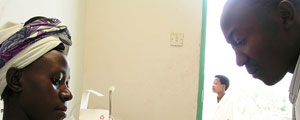
The Parliamentary Portfolio Committee on Health and Child Care has expressed concern over non-disbursements of allocated funds (budget) to the Ministry of Health and Child Care (MoHCC).
by VENERANDA LANGA
In its recent report on the state of affairs of the health delivery system, the committee, chaired by Ruth Labode (MDC-T proportional representation MP), said erratic fiscal disbursements in 2014 had hampered programmes in the ministry.
“The MoHCC submitted a budget of $712 million (2014) and received $337 million, inclusive of salaries, and the allocation received was 47% of the submission, signifying a 11,6% decrease from the 2013 allocation,” the committee said.
“The MoHCC set aside $43 million out of the $337 million allocation for recurrent expenditure and by August 2014, only $7,8 million (18% had been disbursed).”
The committee said hospitals’ allocations in 2014 were $23 million and yet they had an outstanding debt of $36,4 million, which meant that the allocated $23 million had been wiped up by the debt resulting in a financial gap of $12 million.
Community Working Group on Health (CWGH) executive director Itai Rusike said their research on MoHCC allocations for the past years had noted gross inadequacy of the allocated funds, ranging from 2,4% to a highest of 9,6% in 2010, seriously compromising effective planning and implementation of programmes.
“In 2013, the budget allocation responded to 52,6% of the Ministry’s requirements, while this dropped to 47% in the 2014 budget allocation which has left the ministry with an unfunded gap of 53%, translating to $374 995 000,” Rusike said.
- Chamisa under fire over US$120K donation
- Mavhunga puts DeMbare into Chibuku quarterfinals
- Pension funds bet on Cabora Bassa oilfields
- Councils defy govt fire tender directive
Keep Reading
“As at 30 June, 37,8% of the allocated budget had been received. Most of this went to cover salaries and previous year’s debts, (utilities, oxygen, blood, suppliers). Only five out of 16 programmes have received some funding and this severely compromises service provision.”
Health pressure group Citizens Health Watch (CHW) said there was need to curb the issue of expiry of drugs at some rural hospitals.
“We need a computerised system that ensures that drug disbursements are in real time. This will address wastage and even corrupt tendencies in our drug management systems. We need a systematic and consistent auditing system of our drugs, not a system that exposes patients to danger,” CHW said.











